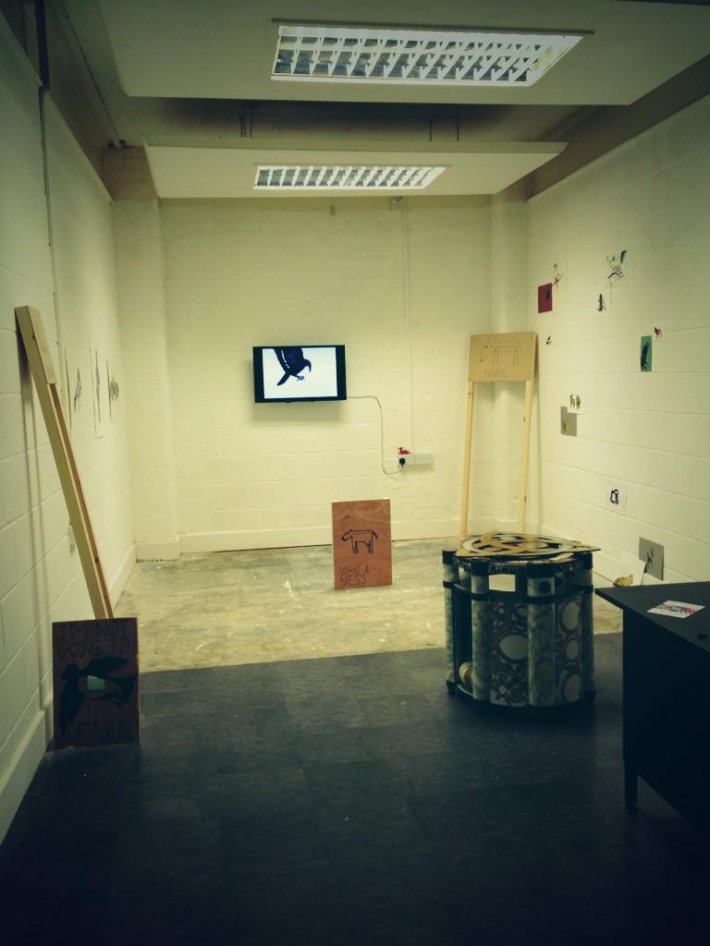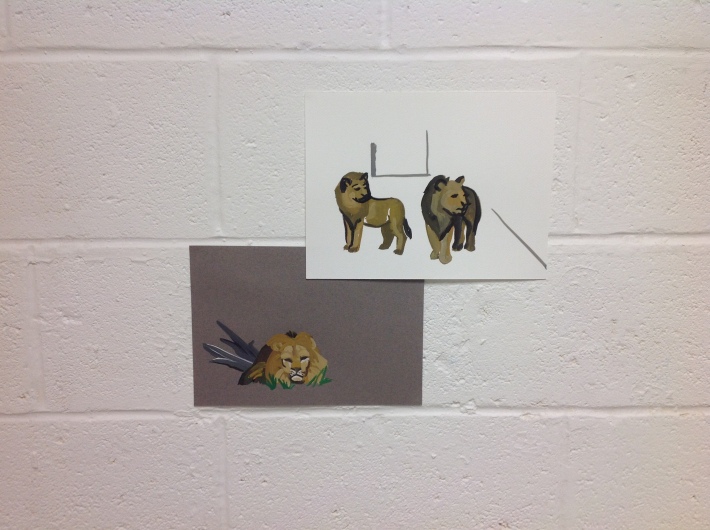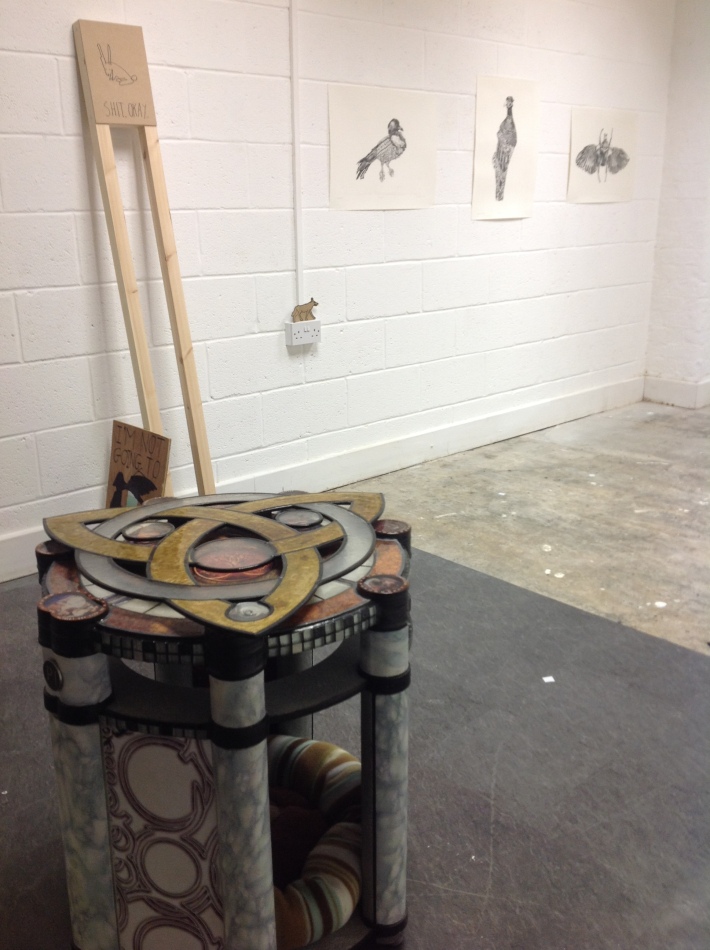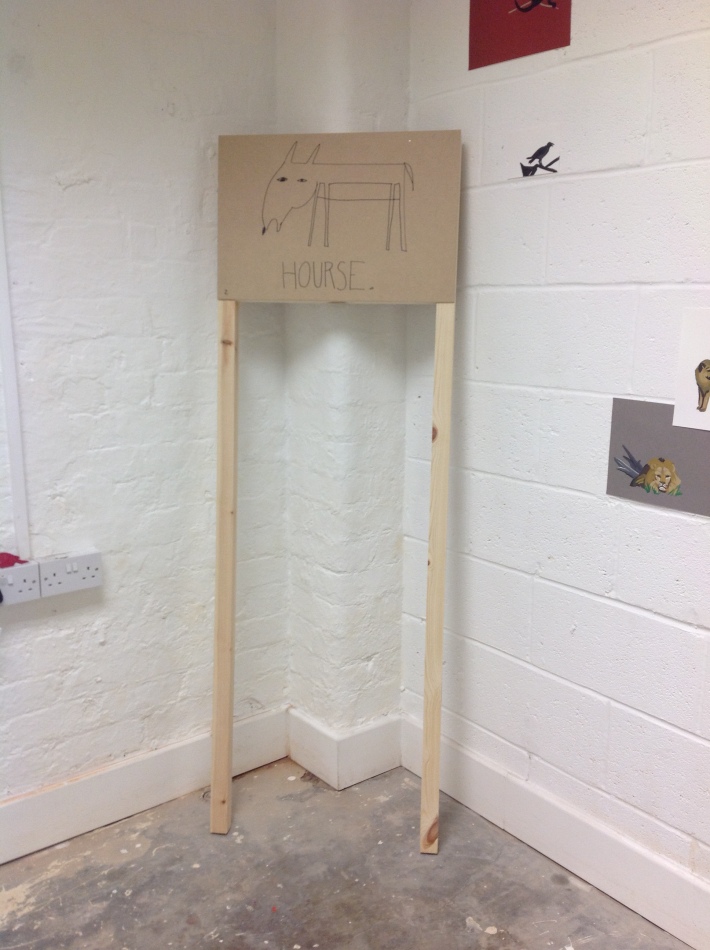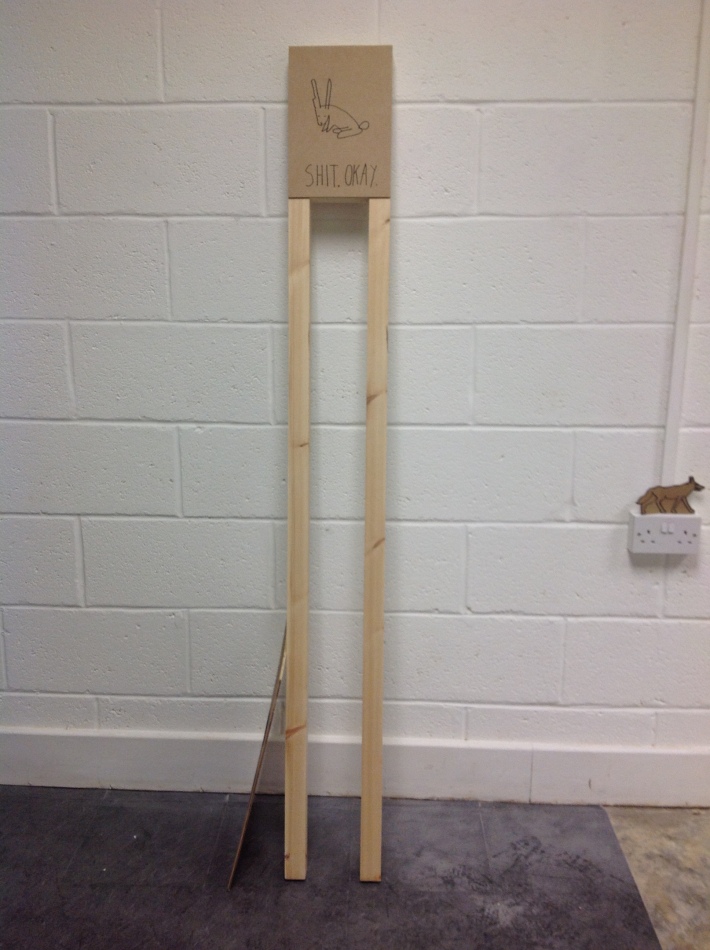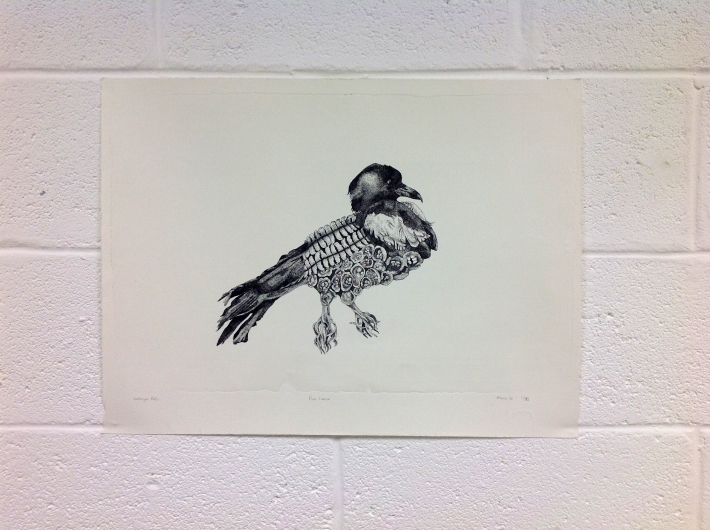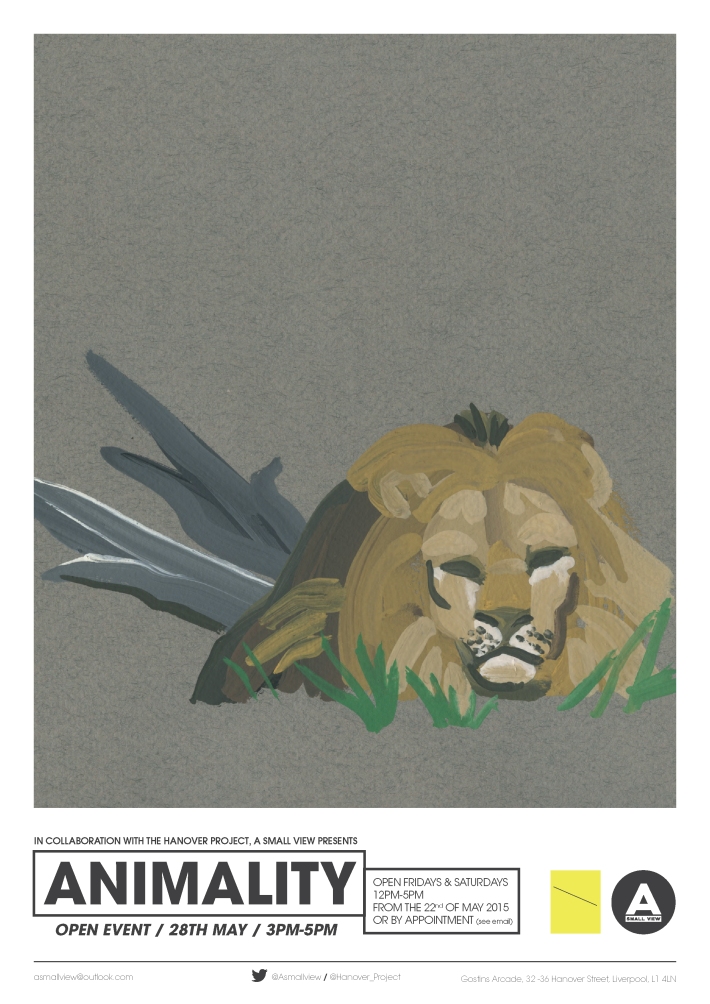28th May – 6th June 2015 | Open Event 28th May 2015 3-5pm
Exhibitors include: Kyle Nathan Brown, Daveid Darbyshire, Cassie Douthwaite and Kathryn Poole
A Small View presents ‘Animality’, an exhibition that examines the relationship between humans and non-human animals.
‘We complain of the darkness in which we live are lives; we do not understand the nature of existence in general; we especially don’t know the relation of are own self to the rest of existence.’
Arthur Schopenhauer
Martin Heidegger is noted as writing that non-human animals are ‘poor in world’, referring to a meagreness in the faculty of reflection, an inability to be aware of a receding past or an ever looming future. Likewise, there is an inability to properly conceive another having a perspective or even an intention, the possession of what one might call a ‘theory of mind’. And yet another point of view turns animals into pure automata, reduced to signal – trigger – performance mechanisms. Points often made when one wants to reinforce anthropocentric beliefs, reiterating language and culture as further means of justification. These are ideas that debase and explain away animals, while overlooking our own animality.
All animals are essentially unfathomable, their experience alien to us. Information that journeys through the brain via the senses are filtered, and the perception individuals hold finite, one doesn’t see all there is to see. What is it like for a bat to see by means of echolocation, or to hear like a dog? Experiences so often reduced to subjects of analysis, understood in terms of quantifiable variables and generalised statements. Abstractions that offer no help in understanding what its like to be said creature. Perhaps theirs is an experience so far removed from our own that it may be meaningless to summaries the experience of another in terms of our own ways of seeing.
Exultant in our supposed intelligence, Homo sapiens often place being in a hierarchical structure. Intelligence is used as the yardstick by which we measure a creatures worth. This point of view fails to accommodate other types of intelligence, nourishment gained by other means. Observe any living existent long enough and you will see profound purpose, exultant in its innate field of expertise. Crocodiles, cockroaches and ostriches are examples of creatures that have occupied the earth for millennia prior to our arrival. They have eked out livings far more efficiently, with far less harm, than we with our supposedly superior mental apparatus. In all probability birds will be nesting in the skeletons of high-rises before we survive a fraction of the time they have lived on planet earth, the residue of our presence left to the creatures some considered lesser than ourselves. Are we then asking the wrong questions when we observe animals?
Rather than thinking of life in terms of hierarchies, perhaps we should consider a flat plain as a model for conceptualising our place in the world. Under this way of thinking, all forms of life are given back individualism, free from the machinations of Homo sapiens. This is the idea that existents exist for themselves, with no one entity more primary nor original than any other, with other non-human animals being free to lead their own life without disturbance from human hubris. Or without being explained away by science. Human beings are grounded in nature, regardless of human exceptionalist beliefs. As Brian Mussumi has stated, ‘as any biologist will tell you, the human body is on the animal continuum’.
